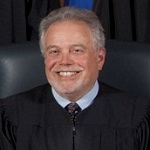Original Seminar Course Length: 2.0 Hours. Ethics
In a tumultuous year that has brought long-avoided issues of racial injustice to the fore, Connecticut is considering certain proactive steps to try to eradicate racial bias in jury selection and deliberation in both civil and criminal cases. Following the release of specific recommendations by the Jury Selection Task Force appointed by Chief Justice Robinson, this event will explore the proposals aimed at identifying and eliminating various forms of conscious and unconscious bias from jury selection and deliberation. Attendees are encouraged to review the Task Force Report and pose questions for the panelists both before and during the event.
Panelists in this session will include Task Force chairs and participants, who will discuss:
- The history and inadequacies of Batson v. Kentucky challenges both theoretically and in practice
- The case of State v. Holmes, which led to the changes being considered in Connecticut
- A groundbreaking Practice Book rule proposed by the Task Force to eliminate the use of peremptory challenges rooted in improper racial attitudes and practices
- Other Task Force proposals, including those relating to increasing participation in the jury system by historically underrepresented communities; enhanced record keeping of jury selection practices; improved explanations to jurors of the pitfalls of unconscious bias; and increased participation by felons and legal permanent residents who are not citizens
If adopted, the proposed changes will substantially alter the jury selection process in Connecticut to ensure that a fair cross section of the population is serving on juries, and put our state in the forefront of those attempting to improve racial justice in our courts at a time when many question the fairness of our judicial system.
CBA members must log in to the CBA website to access the self-study complimentary on-demand resources. These products are audio/video recordings and course materials from live CLE seminars that are three or more years old.
Non-members should call (844)469-2221 to learn how to become a member to gain access to these free member resources.
Complimentary On-demand Product Disclaimer:
Information contained in this audio/video complimentary on-demand product may be outdated and may not meet the criteria for CLE credit. Accordingly, the CBA is not automatically certifying any Connecticut or New York CLE credits for this complimentary on-demand product. CBA members who view/listen to this complimentary on-demand product may claim Connecticut CLE credit on their own as self-study if they determine that the information provided by the on-demand product is timely and relevant and otherwise meets the criteria in CT MCLE rule 2-27A.
- About the efforts that have been undertaken to eliminate racial bias in the jury selection process How racial bias plays a part in the jury selection process
- How the Jury Selection Task Force came to be
- The recommendations the Task Force made and how they would help to eradicate racial bias in jury selection and deliberation
- What practitioners and judges should understand about the recommendations
- Steps you can take to learn more and help to eradicate racial bias in jury selection and deliberation
Who Should Purchase
Judges, civil litigators, prosecutors, public defenders and other criminal defense attorneys, law school professors, law students, other legal professionals, and others concerned about racial bias in jury selection and deliberation.






| Title | Credit Hours | |
|---|---|---|
| 1 | ||
| 2 | ||
| 3 | ||
| 4 | ||
| 5 | ||
| 6 | ||
| 7 |